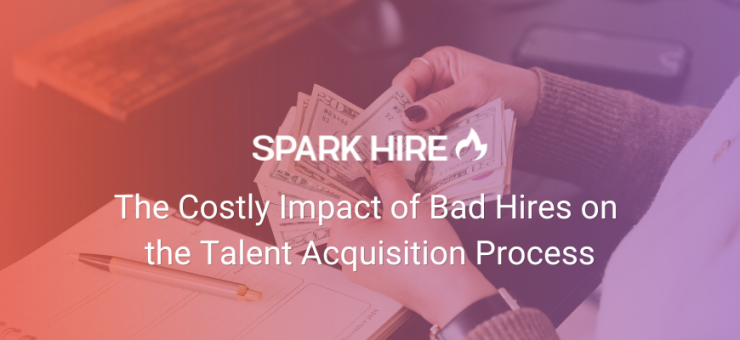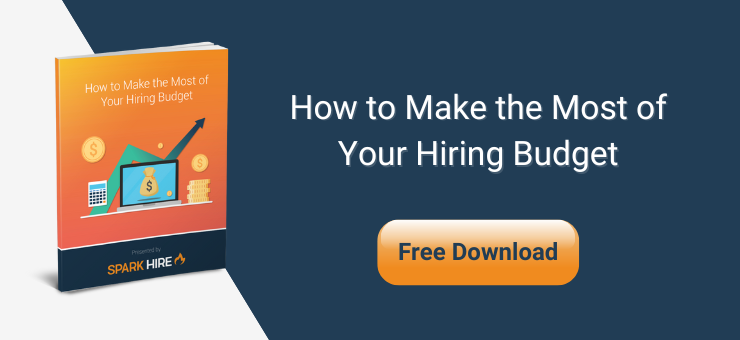As a talent acquisition professional, you are well aware of how costly the hiring process is for your company — both in time and money. Filling an empty role has the potential to create stress on your team, leading to a downturn in productivity. So starting the entire process over due to a bad hire is just not in the cards.
But it happens.
Everyone has made a not-so-perfect hire at least once. Whether they turned out not to be the best fit for the role or the company culture, merely replacing an ill-fitting employee isn’t going to help you recoup your losses. The cost of a bad hire impacts your talent acquisition process for the long run, which means it’s critical your hiring team understands the various ways poor hiring decisions add up.
Here are a number of ways bad hires affect your talent acquisition processes:
Hiring budgets run dry
Money is the most obvious cost to your team. When hiring budgets are already tight, making a bad hire can have negative repercussions on the budget for the rest of the fiscal year. This takes away from the money you could be spending on improving your process to attract, hire, and retain quality hires.
In our report, How to Make the Most of Your Hiring Budget, we discovered only 63% of respondents with a hiring budget of less than $1000 reported their cost-per-hire is less than $1000. And for companies reporting a hiring budget of $1000-$5000, 36% of respondents said their cost-per-hire is within $1001-$2000. This means many hiring teams spend their entire budget on just one or two new hires.
To make matters worse, some hiring pros aren’t aware of how much hires — good or bad — cost. A shocking 24% of hiring professionals who responded to our hiring budget research said they don’t track cost-per-hire and 14% don’t know the ROI of their hiring tools. In these instances, the cost of a bad hire could easily consume your entire hiring budget.
Precious time is wasted
You invest a great deal of time sourcing top candidates before funneling talent into your hiring process. But once your offer is accepted and you enter the onboarding stage, your entire team pours time and resources into acclimating and building relationships with the new hire.
Time is money. When this energy is poured into the wrong candidate and the process must start from square one, the cost of time lost for your team can devastate your talent acquisition strategy.
Not to mention, your second-choice candidates aren’t going to wait around long for a job offer. In fact, according to our Growth Hiring Trends Report, 49% of talent acquisition pros said 7 to 14 days from receipt of an application to an offer letter was their typical target. Unfortunately, the average time to hire is around 42 days, and candidates are applying to several open roles at once. The top talent you passed over while wasting time on the wrong candidate has likely moved on to their next offer.
Productivity wanes
Open roles demand your team’s full attention. During the time you’re sourcing, recruiting, interviewing, and onboarding a new hire, they’re putting every ounce of effort into filling the empty role responsibilities on top of their own. When a bad hire is made, they may have to make up for mistakes or if you have to refill the position, that additional workload and pressure are prolonged.
On top of their increased responsibilities, employees receive less attention from HR and hiring managers during the hiring process. This directly impacts their workflow, which can lead to burnout or overall dissatisfaction in their own role.
Ultimately, stress breeds stress. Lost productivity perpetuates the vicious circle of bad hires, costing your team more time, money, and morale.












